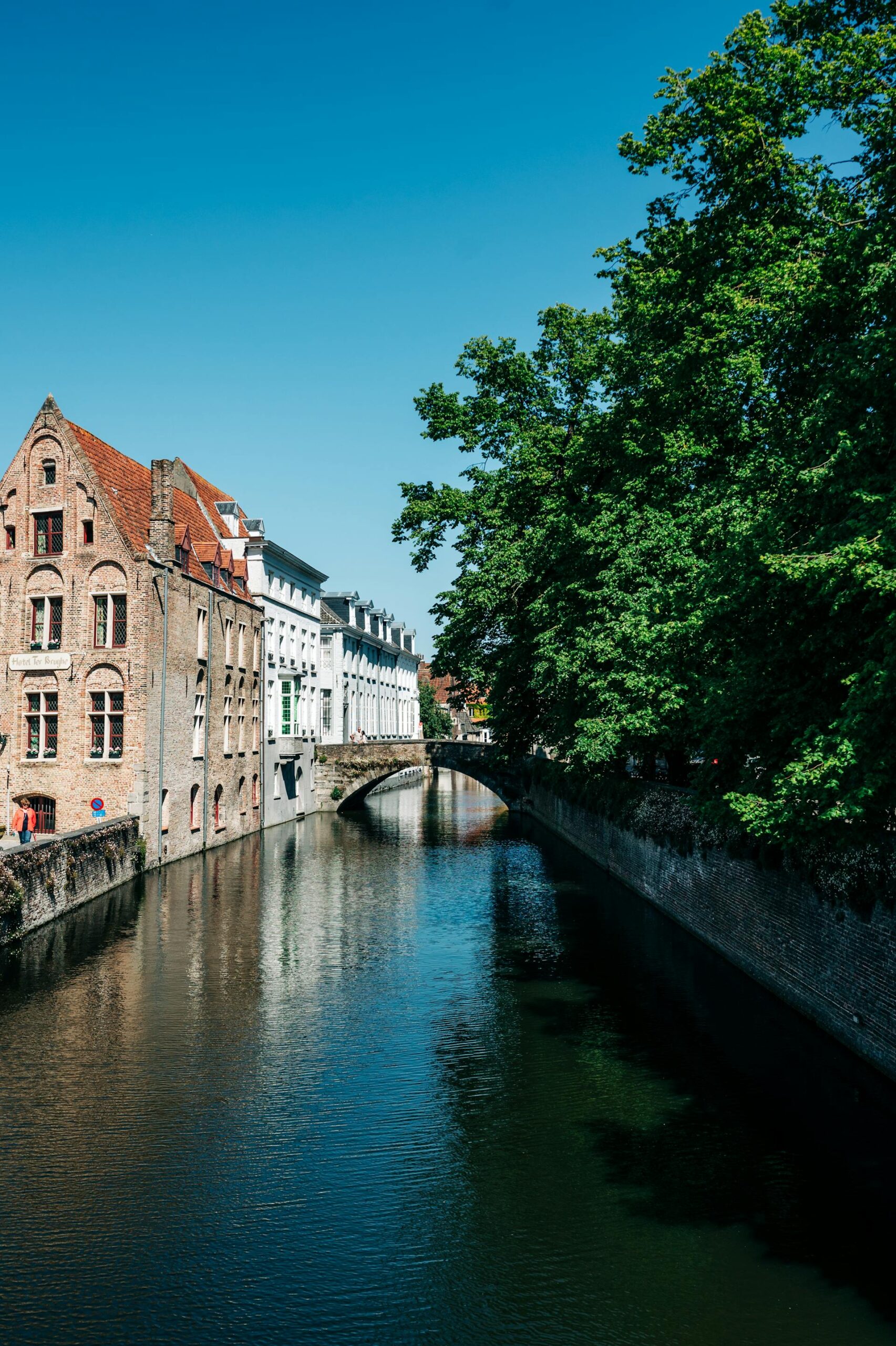Thuin, a serene town perched on the high cliffs overlooking the Sambre River, in Belgium, was a place where time seemed to move more gently. Its cobbled streets whispered stories of bygone eras, and its terraced gardens, cascading like green staircases, held secrets only the locals truly understood. The Belfry of Thuin stood as a sentinel in the heart of the town, its chimes carrying through the valley, marking moments that would soon be memories.
It was here, amid the quaint beauty of Thuin in the state of Hainaut, that Élodie met Luka. Two lives as contrasting as the rich abbey beers brewed nearby and the delicate lace crafted by Thuin’s artisans, yet bound by a thread invisible to the eye but unbreakable to the soul.
This is not just a story of a meeting—it is a story of transformation, of love that burns through certainties and questions everything we think we know about ourselves and the world.
Élodie had lived in Thuin all her life. At thirty-four, she was known in the town as “the old soul.” A teacher at the local school, her wisdom often left even the most skeptical of adults in awe. She loved walking through the hanging gardens, where grapevines clung stubbornly to the terraced slopes, defying gravity and logic. For Élodie, these gardens were metaphors—life could thrive even in precarious places.
On a crisp autumn afternoon, Élodie found herself drawn to her favorite spot at the edge of the gardens, where the town’s panoramic beauty stretched before her. She was lost in thought when she heard footsteps behind her, the kind that hesitated, unsure of their welcome.
“Beautiful, isn’t it?” a voice said, breaking the stillness.
Élodie turned to see a man in his late thirties, his rugged appearance contrasting sharply with the delicate scenery. His clothes were simple but worn in a way that suggested long journeys. His eyes, however, were startling—gray like storm clouds, carrying an intensity that made Élodie feel as though he could see right through her.
“I’ve seen it every day of my life,” Élodie replied, her voice calm, “and yet it still surprises me.”
The man smiled faintly. “I’ve seen many places, but this…this feels different.”
“Are you a traveler?” she asked, intrigued.
“Something like that,” he replied, extending a hand. “Luka.”
Luka was an enigma. Over the following weeks, Élodie often found him in the gardens, sketching the town, its belfry, and the Sambre River winding below. His sketches were remarkable—not just because of their precision, but because they seemed to capture the soul of Thuin.
As they talked, Élodie learned that Luka was an artist who had spent years drifting from city to city, carrying the weight of an unspoken sorrow. He avoided questions about his past, and Élodie, wise enough to sense his pain, did not press him.
But Luka, too, was drawn to Élodie. She had a quiet strength, a depth that made him feel anchored in a way he hadn’t for years. Yet, he couldn’t help but wonder what she would think if she knew the truth—that he had left behind a life shattered by betrayal and loss, that he had come to Thuin not just to sketch its beauty, but to escape his own darkness.
As autumn gave way to winter, the town of Thuin prepared for its traditional Christmas market. The streets came alive with the scent of mulled wine and roasted chestnuts, and the belfry’s chimes seemed to echo the festive spirit. Élodie and Luka found themselves walking through the market one evening, the glow of lanterns illuminating their faces.
“You know,” Luka said, pausing by a stall selling handmade candles, “I used to believe that life was about building certainties. A career, a home, a family. But now I think…maybe it’s more about embracing uncertainties.”
Élodie tilted her head, her eyes searching his. “Uncertainties can be frightening,” she said. “But they can also be where the most beautiful things grow.”
Luka smiled, but his eyes betrayed a storm within. “Do you really believe that?”
“I do,” she said softly. “But belief is a choice, Luka. Just like love.”
The more Élodie and Luka opened up to each other, the deeper their connection grew. But one evening, as snow blanketed Thuin in a hushed stillness, Luka revealed the truth he had been hiding. He spoke of his wife, lost in a tragic accident, and the guilt that had driven him to wander the world, searching for meaning in his art but never finding it.
“I came here to forget,” Luka confessed, his voice breaking. “But instead, I found you.”
Élodie reached for his hand, her touch gentle but firm. “Luka, you can’t escape your past. But you can choose what to do with it.”
Winter melted into spring, and with it, Luka’s heart began to thaw. Inspired by Élodie’s strength, he created a series of paintings that captured not just Thuin’s beauty, but its essence—the resilience of its people, the harmony of its traditions and modernity, the way its belfry seemed to call to something eternal in the human spirit.
On the day Luka unveiled his work at a small exhibition in the town hall, the belfry’s bells rang out, their sound carrying a message of hope. Standing beside Élodie, Luka realized that love was not about erasing pain, but about finding someone who could hold your hand as you faced it.
Years later, visitors to Thuin often stop at a particular spot in the hanging gardens, where a small plaque commemorates the story of an artist and a teacher who found each other in the heart of the town.
Their story is a reminder that life is not a series of certainties, but a dance with the unknown. And sometimes, in the most unexpected places, love finds a way to grow—even on the steepest slopes.

Leave a Reply